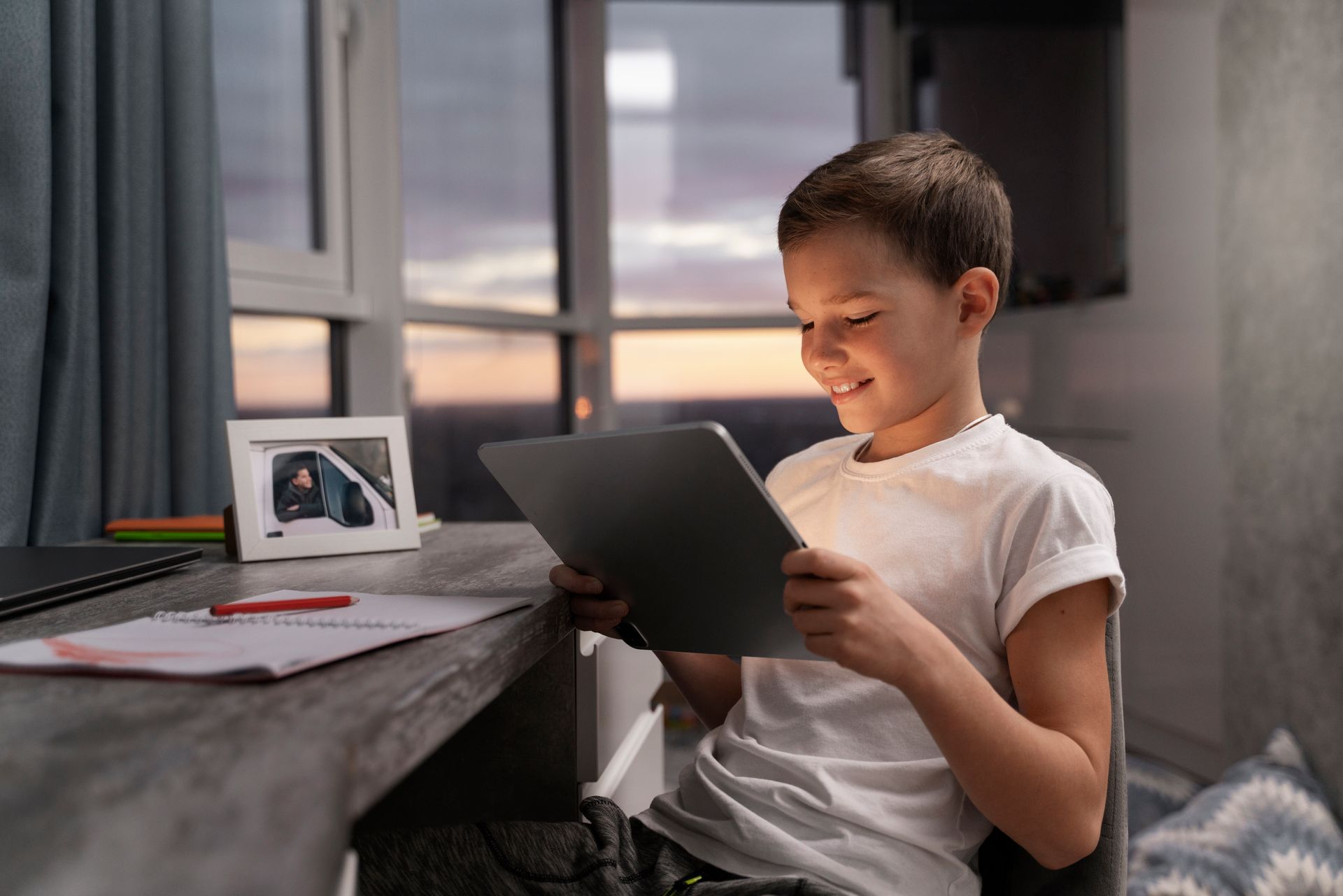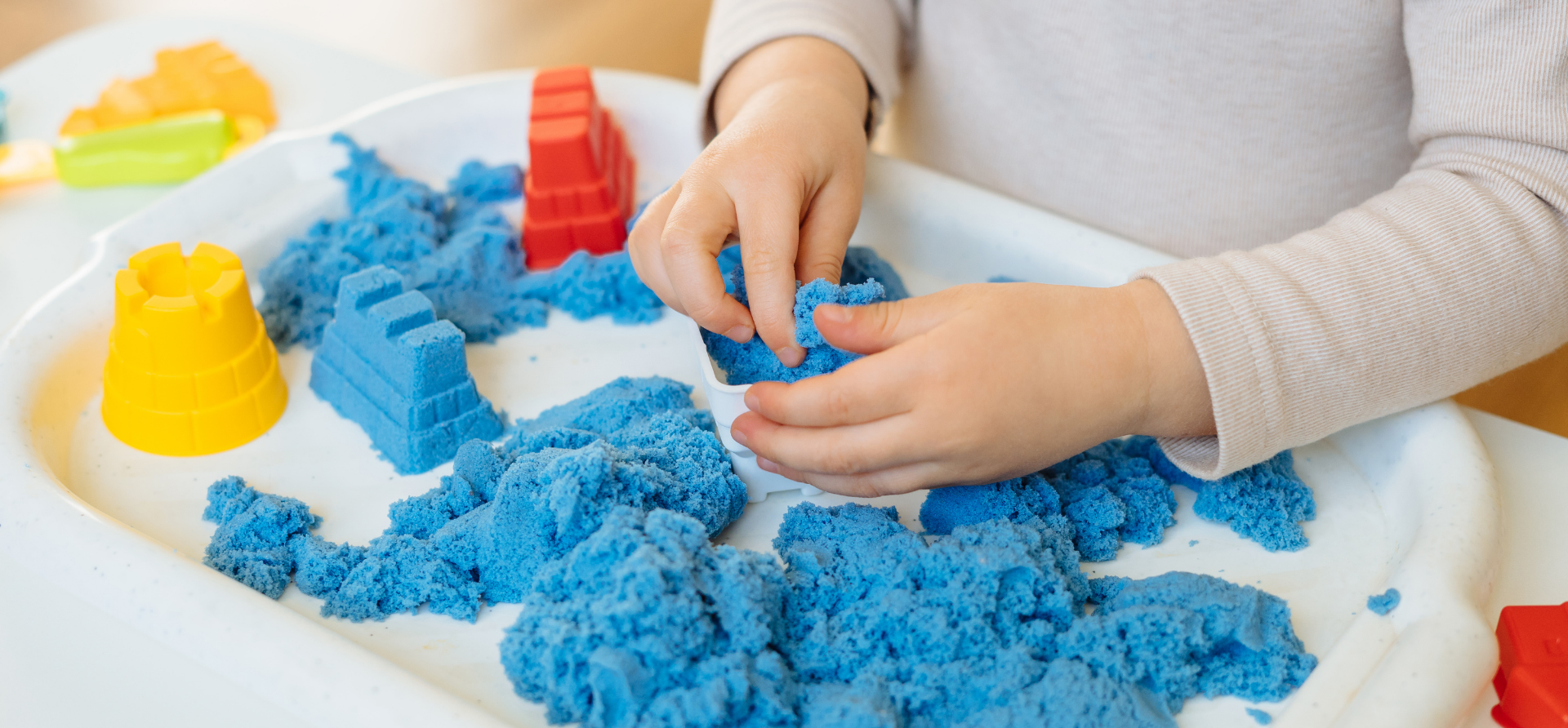Screen Time vs. Story Time: Finding the Right Balance at Home

In today's digital age, screens are everywhere—from televisions and tablets to smartphones and computers. For parents of young children, screen time can feel like both a blessing and a burden. While screens can offer educational content and moments of quiet, they also compete with traditional activities like reading, outdoor play, and face-to-face interaction. One of the most important decisions families face is how to balance screen time with story time—the kind of nurturing, imaginative engagement that fuels early childhood development.
At Storybook School Orlando, we believe in the power of stories to build language, foster empathy, and strengthen the parent-child bond. But we also understand that technology is a part of modern life. This blog post explores how to create a healthy balance between screen time and story time, empowering families to make choices that support their child's development and wellbeing.
Why Story Time Matters
Story time is about much more than reading words on a page. When a child snuggles up with a parent or teacher to hear a story, they are engaging in an interactive experience that stimulates brain development and builds critical skills.
Benefits of Story Time Include:
- Language Development: Children are exposed to new vocabulary, sentence structures, and expressive language.
- Imagination and Creativity: Stories encourage children to visualize characters, settings, and events.
- Emotional Growth: Books introduce children to emotions, challenges, and moral lessons.
- Bonding: Shared reading time strengthens the emotional connection between adults and children.
- Listening and Attention: Regular story time improves focus and listening skills, which are essential for classroom readiness.
Story time is also a great tool for preparing your child for school transitions. In fact, our article onhow to prepare your child for daycare outlines how reading routines can ease separation anxiety and build confidence.
Understanding Screen Time
Not all screen time is created equal. Educational programs, interactive games, and video chats with loved ones can offer benefits. But too much passive screen time—especially when used as a distraction or pacifier—can have negative effects.
Potential Downsides of Excessive Screen Time:
- Delayed Language Development: Children learn language through human interaction, not from screens alone.
- Reduced Sleep Quality: Screens emit blue light, which can interfere with natural sleep cycles.
- Shortened Attention Spans: Fast-paced screen content can make real-world experiences seem slow or boring.
- Less Physical Activity: Screen time often replaces active play, which is crucial for physical health and motor skill development.
- Fewer Social Skills: Children need real-time social interaction to develop empathy, cooperation, and emotional regulation.
The American Academy of Pediatrics (AAP) recommends:
- Under 18 months: Avoid screen time except for video chatting.
- 18-24 months: Introduce high-quality programming with adult interaction.
- 2-5 years: Limit screen use to one hour per day of high-quality content, co-viewed with a caregiver.
Finding the Right Balance
Balance doesn’t mean eliminating screens entirely—it means being intentional about how, when, and why they’re used. Here are practical strategies to help you maintain a healthy equilibrium between screen time and story time:
1. Set Daily Limits
Create a predictable routine where screen time is limited to specific times of day, such as after lunch or during quiet time. Avoid screens close to bedtime, as they can disrupt sleep.
2. Choose High-Quality Content
Not all screen content is equal. Look for educational apps and shows that encourage thinking, problem-solving, and creativity. Avoid content with rapid-fire editing or inappropriate themes.
3. Watch Together
Whenever possible, co-view content with your child. Pause to ask questions, explain concepts, or talk about what’s happening. This turns screen time into a more interactive, story-like experience.
4. Make Story Time Special
Create a cozy reading nook at home and schedule daily story time. Let your child choose the book and engage them with questions, character voices, or acting out scenes.
5. Use Screens to Inspire Stories
If your child enjoys a particular show or game, use it as a launching point for storytelling. “What do you think would happen next?” or “Can you make up your own adventure with these characters?” encourages creative thinking.
6. Be a Role Model
Children mimic what they see. If you spend a lot of time on your phone or tablet, your child is more likely to do the same. Demonstrate a love for books, nature, and conversation.
7. Offer Alternatives
Boredom often leads to screen use. Keep a rotation of engaging, non-digital activities on hand: puzzles, building blocks, coloring supplies, and of course, books.
Integrating Story Time Into Daily Life
Reading doesn’t have to be limited to bedtime. Here are creative ways to weave story time into your routine:
- Morning Read-Aloud: Start the day with a short story to set a calm, positive tone.
- Meal-Time Books: Keep a stack of board books at the table for breakfast or lunch.
- On-the-Go Stories: Use audiobooks during car rides or make up stories while waiting in line.
- Theme Days: Build a day of activities around a book theme—like “Bear Day” after reading
Brown Bear, Brown Bear.
- Storytelling Without Books: Invite your child to tell a story from their day, or share a funny memory from your own childhood.
Partnering With Your Child’s School
At Storybook School Orlando, we reinforce the value of story time in every classroom. Our teachers model expressive reading, encourage children to create their own narratives, and build literacy skills through play. We also help families extend storytelling at home through recommended book lists and reading strategies.
Story time can also serve as a comforting and effective way to ease children into new routines—such as transitioning to a care environment—by providing structure and familiarity; for helpful tips on easing this transition, check out our guides on how to prepare your child for daycare and whether daycare runs all year round, which offer insights that complement your efforts at home.
Final Thoughts
Screens are a reality of modern parenting, but they should not replace the rich, relational experience of storytelling. Story time offers an irreplaceable opportunity to connect, imagine, and grow together. With a little planning and awareness, families can strike a balance that meets the needs of both child and parent.
At Storybook School Orlando, we’re committed to helping families navigate the early years with confidence and joy. Whether you’re snuggling up with a bedtime book or choosing a thoughtful app, remember that you’re shaping your child’s understanding of the world—and that’s the most important story of all.
Interested in learning more about our literacy-rich environment? Schedule a visit to Storybook School Orlando and discover how we make every moment a learning opportunity—on and off the screen.













